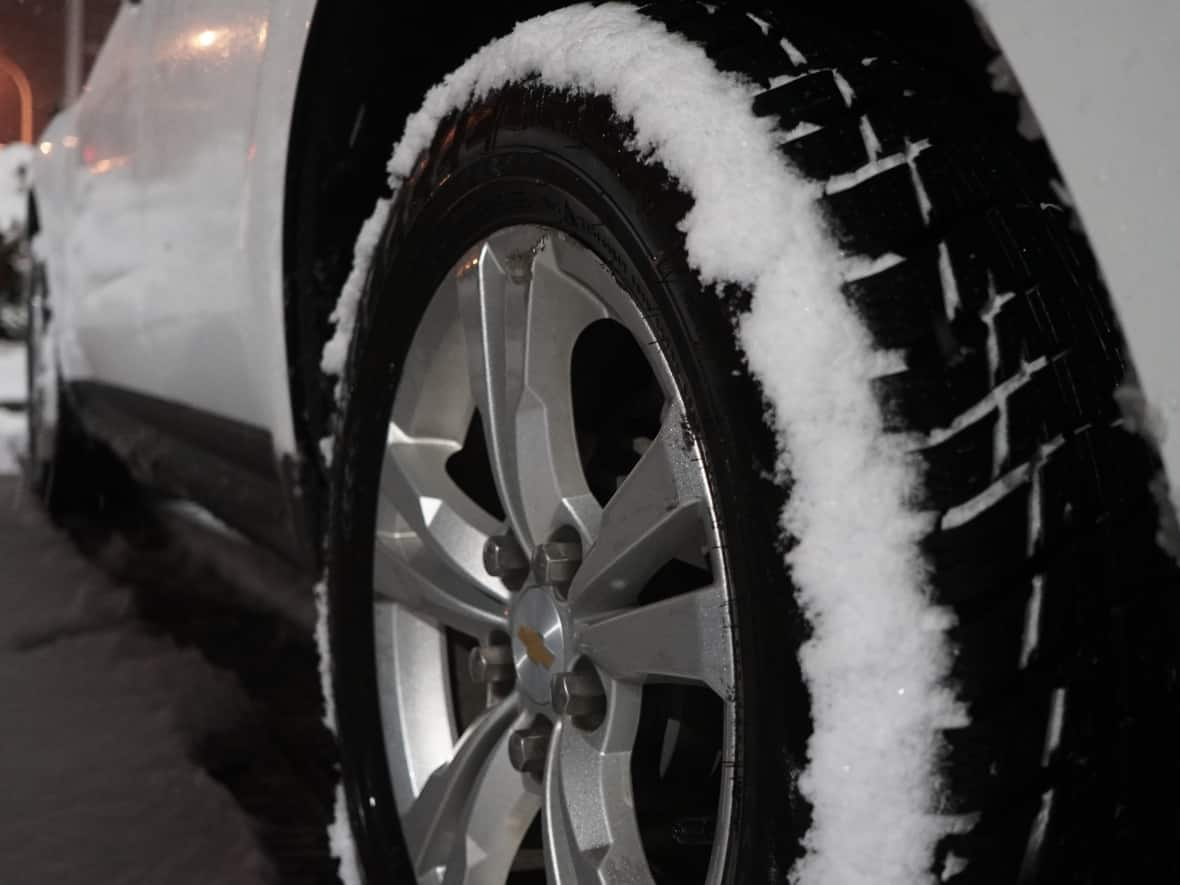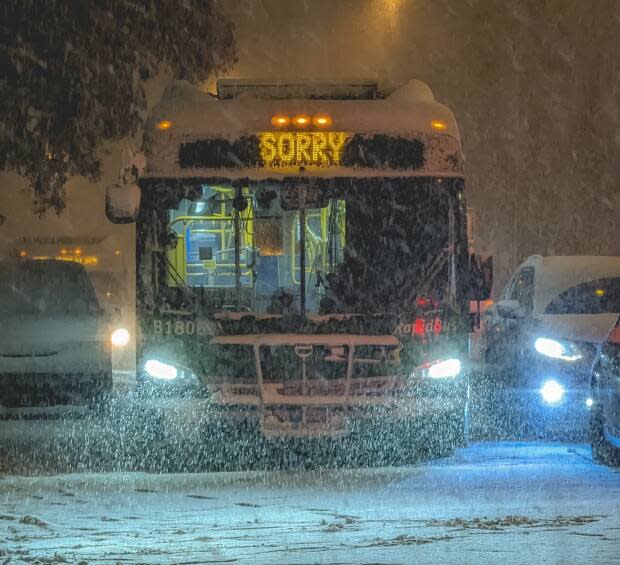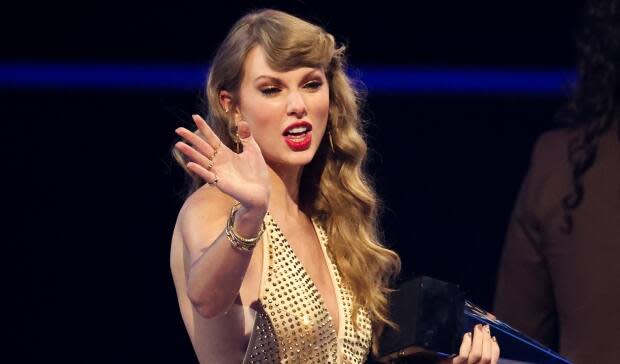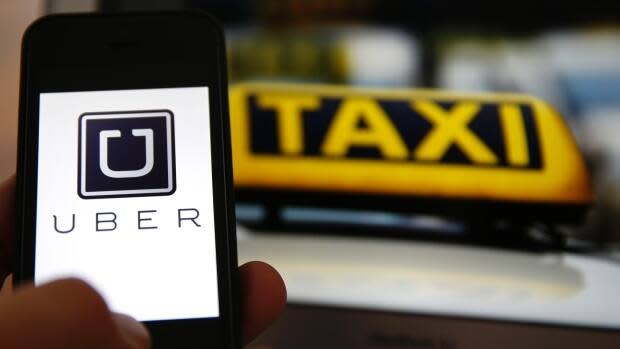Uber customers ask why the price of a ride literally changes with the weather

Aaron Gross's girlfriend travels about four kilometres from their home in Vancouver's Olympic Village to her job as a dental assistant, a trip she sometimes makes by Uber.
Gross picked up the tab for the ride-sharing service Wednesday morning, but the cost was well beyond the $15 they're used to paying: prices were as high as $70. He ultimately settled for $42 after waiting until the very last moment.
The graphic designer says he believes the riding-sharing app has helped break up what he calls the "taxi Mafia," but he's uncomfortable with a pricing scheme that literally changes as often as the weather.
"It would take forever to get a cab," he said.
"To see they can control people's [access] in certain situations to transportation … It kind of makes me uncomfortable."
Ride-sharing companies have a name for the phenomenon that may have left their Metro Vancouver customers gasping at the height of Tuesday's snowstorm: surge pricing.
"There are times when so many people are requesting rides that there aren't enough cars on the road to help take them all," Uber's website says.
"In these cases of very high demand, prices may increase to help ensure that those who need a ride can get one."
Exactly why surge pricing is supposed to be a good thing may not be convincingly explained — but according to the body that regulates services like Uber, it is legal.
Decision to hail rides 'up to the consumer'
Gabriele Marchese, who speaks for the Passenger Transportation Board, says surge pricing is part of the business model for services like Uber and Lyft. While taxis can't charge more than the metered price, they operate under a different set of rules.
Marchese says ride sharing apps quote the price of a ride ahead of time, and customers can make their decision to use the service accordingly.
"It's absolutely up to the consumer," Marchese says.
"The consumers make the decision before they accept the ride, they can make the determination if that's the price that they're okay with or not."

Greg Cope White decided he was somewhat okay with an increased price, which is why he took an Uber Black from the airport to a hotel 643 metres away Tuesday night.
He agreed to pay the posted price of $86, but the app later charged him $196 for surge pricing.
Cope White challenged the fee and Uber gave him back the difference. But he thinks the practice is wrong.
"I don't think surge pricing is ever right. You agree on a price and there's the price," he says.
"They're obviously taking advantage of the old adage, 'whatever the market will bear.'"
From snow to Swift
Complaints over surge pricing — or dynamic pricing, as it is also known — extend beyond ride-sharing services to include the cost of concert tickets for entertainers like Taylor Swift and Bruce Springsteen.
Fans of both singers have complained that Ticketmaster's pricing algorithms have placed the price of seeing their favourite artists well out of reach.

Uber has come in for heavy criticism in locations around the world for surge pricing. Customers in Sydney complained when prices increased four-fold during a 2014 hostage crisis, and New Yorkers have consistently griped about prices during blizzards.
That led to a promise from Uber in 2015 to cap surge pricing at 2.8 times the normal rate in New York City as a historic snowstorm approached and the state's attorney general warned against price gouging.
Politicians in India have also struggled to contain surge pricing, coming up with a scheme that limits costs to twice the normal fare in New Delhi, after initially toying with the idea of banning the practice.
No such plans appear to be in the works in British Columbia.
Marchese says the board's job is to ensure consumers have a variety of options to choose from when they need to get from point A to point B. No matter the weather.
"We're not here to interrupt the competitive market at all," she says.
"That would quite literally go against everything that we do as an economic regulator. Surge pricing happens in many fields, not just the passenger transportation field."
'We'll probably suck it up'
But is it gouging?
A 2016 paper written for the Institute for International Economic Policy at George Washington University argued that "public misunderstanding" was the problem — not greed.
"Almost everyone affected by the emergency can be shown to be better off with the surge pricing/free market response," the paper said.

The author argued that surge pricing could be helpful in an emergency by reducing long lines for services and ensuring against hoarding.
"This outcome will be efficient because the critical scarce resources will be allocated via the price mechanism in the order of greatest to least need," the paper read.
Gross isn't sold. He believes ride-share apps should cap costs, especially when the distance is below 10 kilometres.
But for now, he says he'll continue to pay surge prices when in need of safe and quick transportation.
"We'll probably suck it up and just pay it again," he says.
"I don't know what other option there would be."


